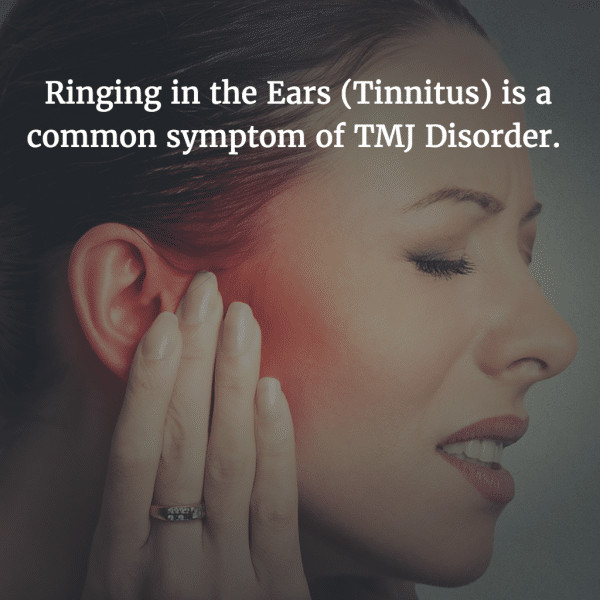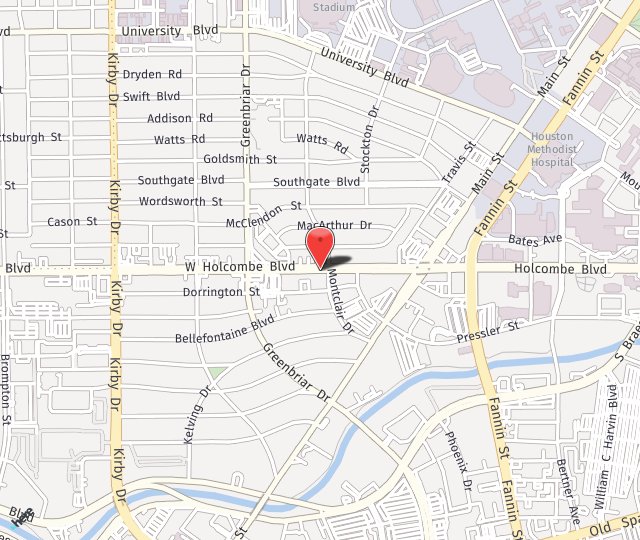What is Tinnitus
Tinnitus is when you hear a sound, but no external sound can be detected. It is sometimes called "ringing in the ears," and its name comes from the Latin for “to ring like a bell,” but the sound can range from ringing to roaring to clicking, hissing, screeching, even music, almost any sound imaginable. It may be constant, or it may be periodic.
About 12 million Americans suffer severe tinnitus for which they seek medical attention. There seem to be many causes of tinnitus, one of which is TMJ. Tinnitus is more than a nuisance; it can become a serious emotional and psychological problem and significantly decrease your quality of life.
If you have tinnitus as part of your TMJ symptoms, please do not continue to suffer. Instead, schedule a consultation with Houston neuromuscular dentist Dr. Ronald Konig today by calling 713-668-2289 to learn how treatment can reduce or eliminate your tinnitus.
Tinnitus Is Not Your Imagination
Just because there is no external sound behind your tinnitus does not mean that it is just your imagination. Instead, tinnitus is a real phenomenon, caused by an internal stimulus.
Often, this is related to pressure on the auditory nerves, sometimes by a tumor and sometimes by muscles, ligaments, or blood vessels. It may be related to ear damage from medications or exposure to loud noises. It can also be related to some disorders, including hypo- or hyperthyroidism and Lyme disease. Tinnitus is a common symptom of head or neck injury.
And tinnitus is associated with TMJ.
TMJ and Tinnitus

Do you ever open and close your jaw or chew gum to equalize pressure in your ears on an airplane? This depends on one of two small but important muscles that affect the inner ear, the tensor levi palatine, which helps to open and close the Eustachian tubes that regulate air pressure in your ears. The second muscle in the inner ear is the tensor tympani, which stabilizes the ear drum.
Both of these muscles flex when your jaw flexes, so when your jaw muscles are working, so are they. And if your jaw muscles are overworking as a result of TMJ, they are, too, which can make your ear canal sensitive and contribute to tinnitus.
Tinnitus is not typically the lone symptom of TMJ, but if your tinnitus is accompanied by other symptoms, like headaches, neck and shoulder pain, and jaw pain, TMJ treatment can typically reduce it, along with the other symptoms.
How Do I Know if My Tinnitus is Caused by TMJ?
Tinnitus can be a frustrating, ongoing problem that becomes severe enough to affect your quality of life. Unfortunately, it may not be possible to cure all types of ringing in the ears. You must explore the potential that your tinnitus has been caused by something other than your jaw. One of the most common causes of tinnitus is repeated exposure to loud noises, such as explosives. Certain illnesses or medical conditions can also contribute to the development of ringing in the ears. Examples include thyroid disease, sinus infections, and even hormonal changes.
You and Dr. Konig may discuss a connection between your tinnitus and TMJ if you meet certain criteria. These include:
- You have TMJ symptoms like jaw pain, tingling or numbness, or headaches.
- Your tinnitus is on the severe side. According to studies, people with TMJ are more likely to report more disruptive ringing in the ears.
- Ringing in the ears is worse after you've engaged in somewhat strenuous jaw activity such as chewing steak or chewy food. If your tinnitus is worse in the morning, it could be tied to clenching and grinding your teeth.
- The pitch or tone of your ringing in the ears changes when you move your jaw. This could indicate compression of the nerves that send signals from the ears to the brain.
What Can be Done to Correct Tinnitus Caused by TMJ?
If you've discovered that your TMJ is causing ringing in the ears, the best thing to do is talk to a neuromuscular dentist. There are several remedies that can soothe some of the milder symptoms of joint stiffness and inflammation. We'll list them here. Keep in mind, however, that tinnitus can be a symptom of more severe temporomandibular joint disorder. The following remedies and conservative interventions may not be sufficient for satisfactory resolution, but they're certainly worth a try.
- Eat soft foods.
- Take over-the-counter anti-inflammatory medication as needed.
- Talk to your doctor about prescription muscle relaxants (and understand the side effects).
- Talk to your doctor about physical therapy to strengthen and stretch the jaw muscles.
- Talk to your dentist about bite realignment or other oral therapies.
Do I Need a Hearing Aid to Help with My Tinnitus if TMJ is Involved?
Hearing aids are often recommended by medical doctors treating patients with tinnitus. These small devices do not resolve the issue within the ear. They work more by masking the sounds that are internal by enhancing external sounds. If your tinnitus is related to TMJ, you may have little luck with hearing aids as a supportive therapy. Some studies suggest that TMJ tinnitus is more difficult to manage with hearing aids because getting the proper seal between the hearing aid and the ear canal is challenging.
If you have TMJ symptoms and also have ringing in the ears, trying only lifestyle remedies and medical treatments may leave you feeling more frustrated than you need to be. A lack of results can also incite feelings of hopelessness. This needn't be the case! In treating your TMJ, you may find remarkable relief from persistent ringing in the ears.
If you have one or more symptoms of TMJ, you may be able to receive benefit from neuromuscular dentistry treatment. Seek treatment for tinnitus and more by calling 713-668-2289 to schedule an initial consultation with Houston dentist Ronald W. Konig, DDS, FAGD, LVIF, today. Serving the areas of Sugar Land, The Woodlands, Katy and nearby Texas communities.

